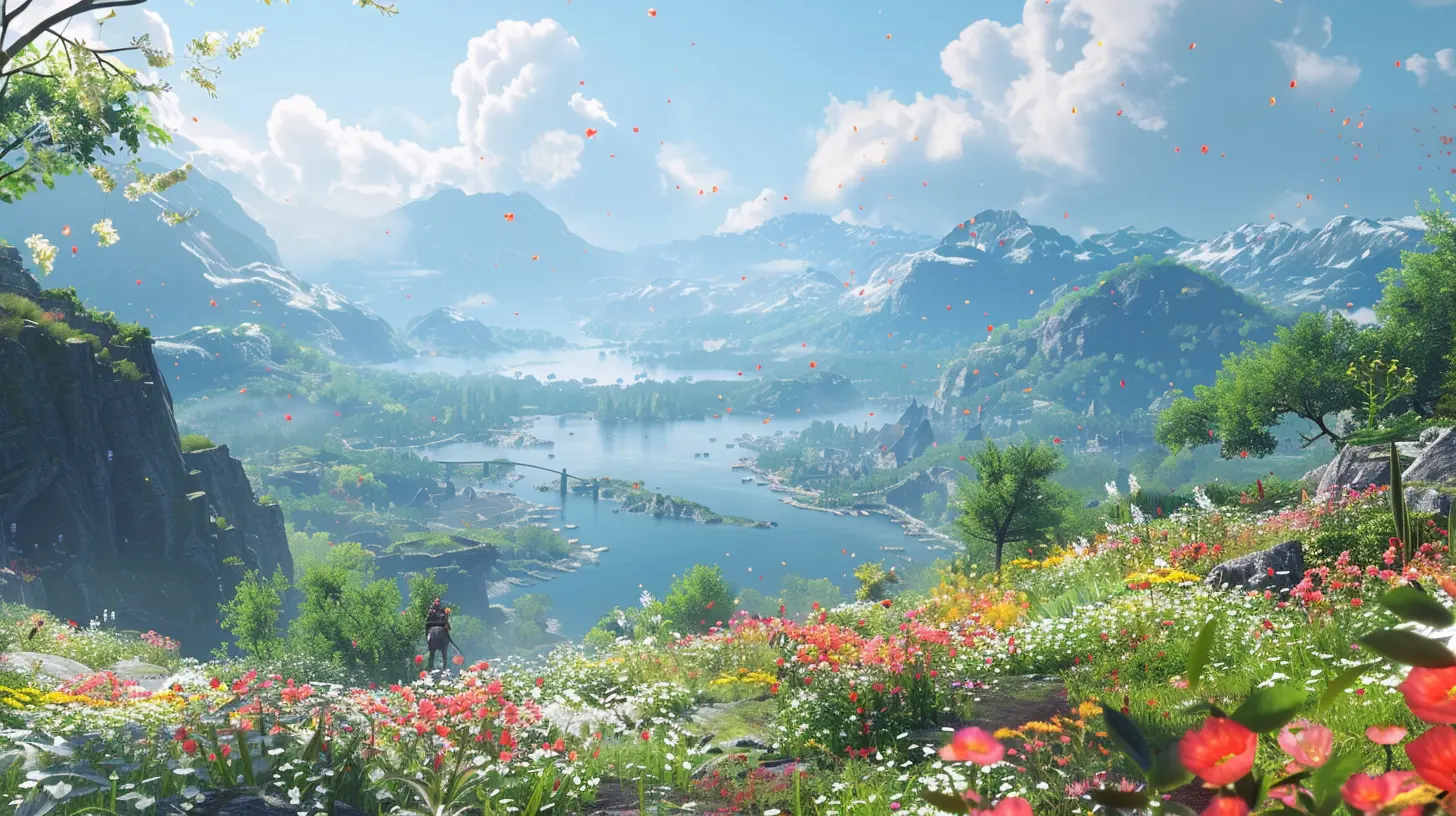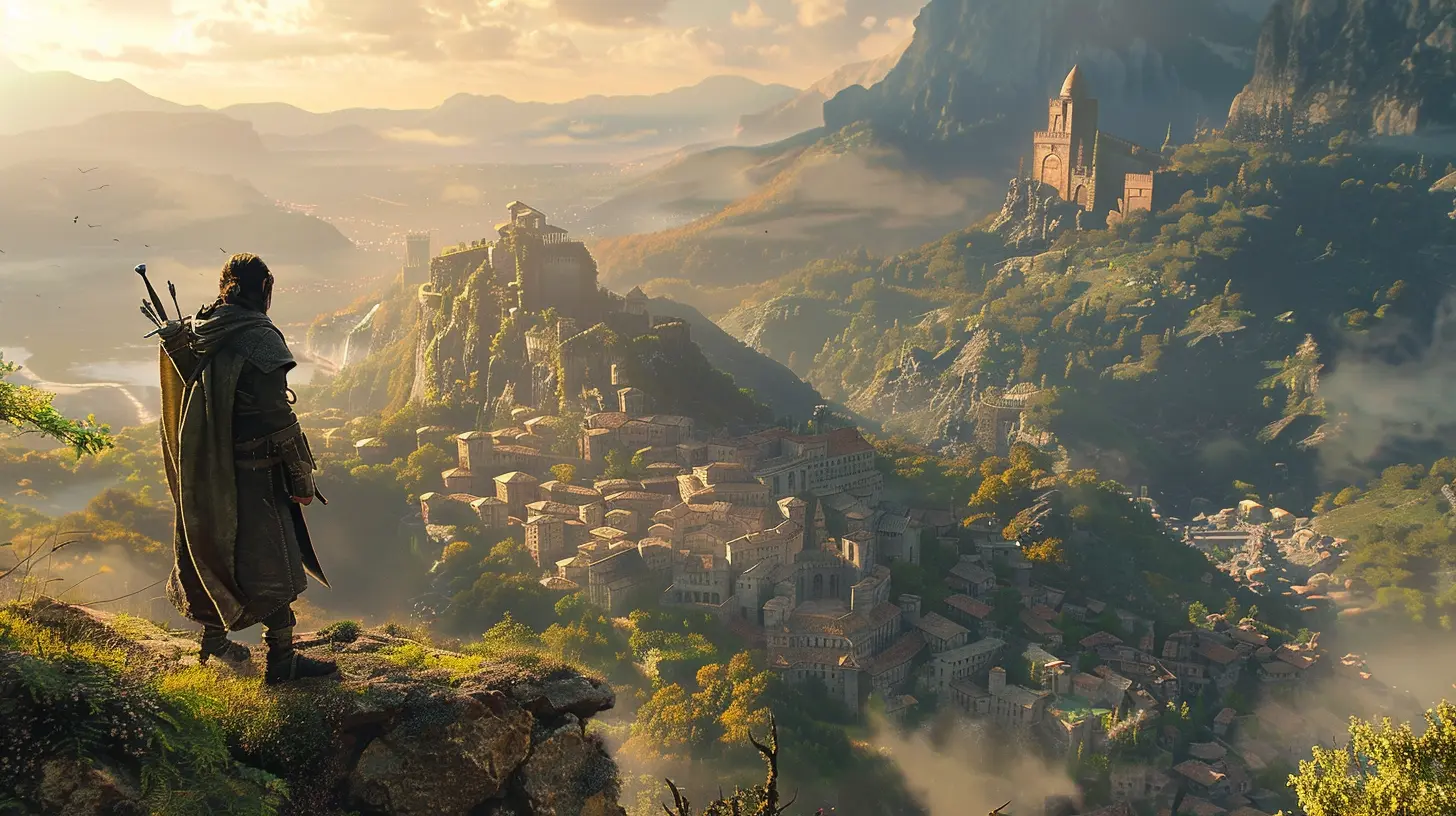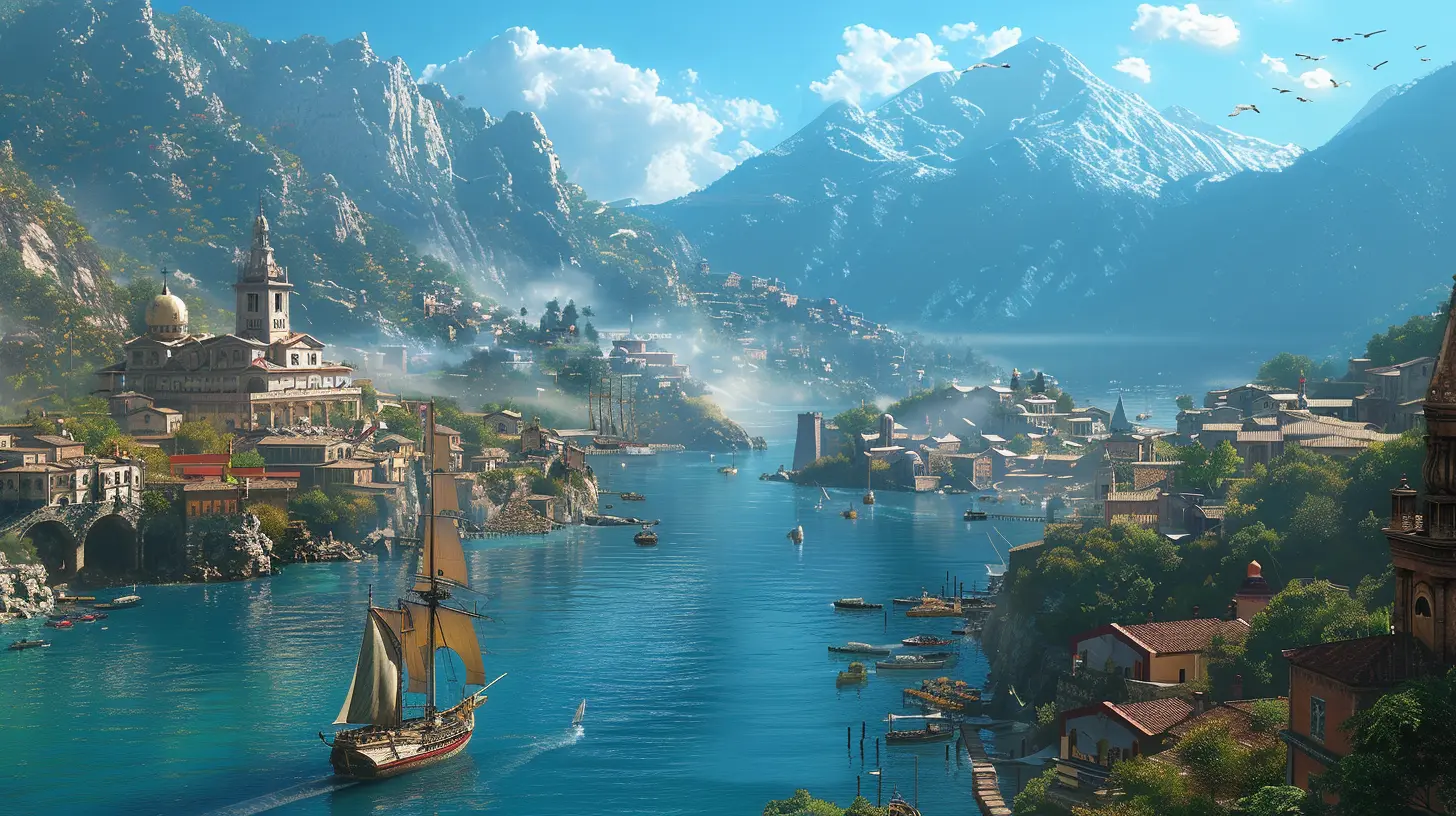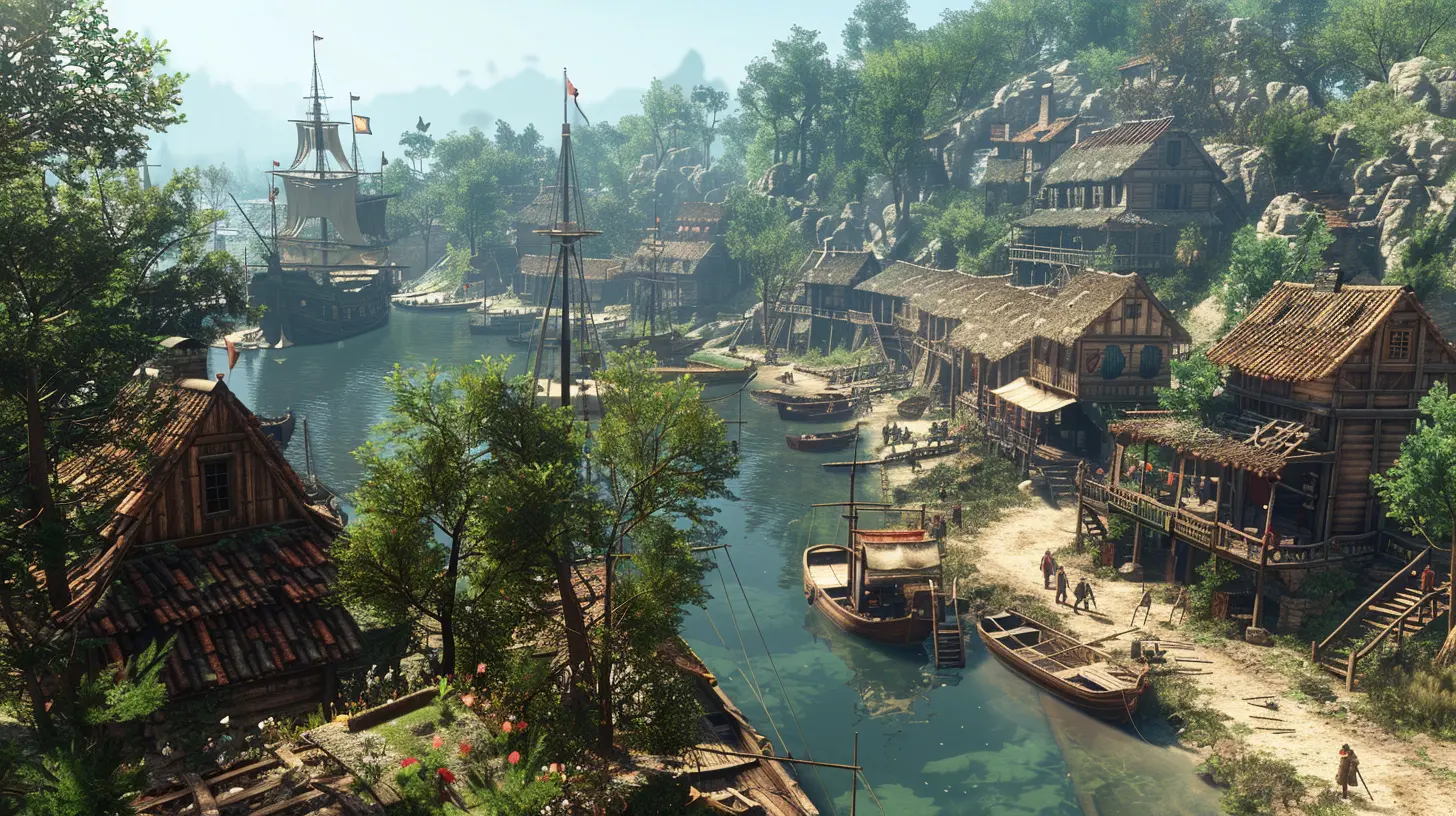Open World Games and Their Influence on Player Autonomy
8 November 2025
Alright, let’s be honest for a second. Who hasn’t booted up an open world game just to ignore the main quest for five hours while you climb mountains, collect shiny junk, or chase chickens off a cliff? Yeah, same here. Open world games have become more than just a gaming genre. They’re basically a lifestyle at this point. And one of their biggest flexes? Player autonomy.
That’s a fancy way of saying, “You do you, boo.” But what does that even mean in game design? Why are open world games so darn addictive? And how exactly do they mess with our sense of freedom in the best way possible? Buckle up, because we’re diving into that chaotic, exploration-filled sandbox to get the scoop on how these digital playgrounds make us feel like the kings and queens of our own epic stories.
What the Heck is “Player Autonomy,” Anyway?
Okay, before we dive headfirst into the deep end, let’s clear up the buzzword of the day: Player Autonomy. It’s not some shadowy Illuminati gaming term. It basically means giving players the freedom to choose how they play a game.Imagine going to an all-you-can-eat buffet. You’re not forced to follow a set menu. You pick what you want — maybe some spaghetti with a side of tacos and one suspicious-looking dumpling. That’s autonomy. Now, transfer that to the game world. Want to ride a stolen horse across the desert instead of saving the universe? You’re the boss.
A Little Trip Down Memory Lane
Way back in the day, games were mostly linear. Think Mario Bros – left to right, stomp some bad guys, grab a flag. The path was clear, and you didn’t question it. We loved it, but we weren’t really calling the shots.Then The Legend of Zelda happened, and things started getting spicy. Suddenly, you could roam around, decide where to go next, and even get lost (on purpose). That was the early taste of player autonomy. And since then, that little taste has turned into a full-blown buffet of choices thanks to modern open world games.
How Open World Games Put You in the Driver’s Seat
Now that we know what we’re talking about, let’s break down how open world games crank up the autonomy dial.1. Go Anywhere, Do Anything (Sorta)
One of the trademarks of an open world game? You see that mountain? You can probably climb it. You see that city in the distance? Saddle up, amigo, 'cause you’re going there. Developers design these worlds to feel seamless and open, like one big toy box where every toy has an instruction manual written in “do whatever you want.”Games like Skyrim, The Witcher 3, and GTA V are iconic for giving players this freedom. You can run straight to your doom fighting dragons or spend 30 hours picking flowers and making potions. The only “wrong” choice? Not playing.
2. Multiple Ways to Solve the Same Problem
Let’s say you're on a quest to sneak into a heavily guarded fortress. In a linear game, you’re given one path. In an open world game? Nah, you could:- Wear a disguise like a sneaky raccoon.
- Charm your way in with sweet-talking skills.
- Blow a hole in the wall and announce yourself like a firework.
Games like Fallout and Dishonored (okay, it's more semi-open world) treat problem-solving like a brainstorming session — there’s no single correct answer. You figure it out your way.
3. Side Quests, AKA the Ultimate Distraction
Open world games are notorious for side quests. You set off to save the world, and four hours later you're helping a baker find his lost bread. It’s chaotic, it’s random, and it’s amazing.Why? Because those off-the-rails moments reinforce the idea that you’re writing your own story.
4. Choice and Consequence
Remember those games where your decisions actually affect the world? NPCs remember what you do. Maybe you chose to spare a villain, and five hours later he saves your butt. Or maybe you stole someone’s sandwich, and now the whole town hates you.Games like Red Dead Redemption 2 and Cyberpunk 2077 make you feel like your actions matter — not just in the moment, but in the long haul. That’s deep autonomy-level stuff right there.
The Psychological Power of Player Autonomy
Alright, let’s put on our thinking caps for a sec. Why does having control in a game feel so dang good?Dopamine, Baby
When you make choices and they lead to success, your brain throws a dopamine party. It’s the same chemical that goes off when you eat chocolate or get a like on your cat photo. Games let you chase those hits with every successful quest, every unlocked achievement, every NPC you didn’t accidentally punch in the face (hey, it happens).Agency Feels Empowering
In real life, we don’t always get to call the shots. Bills, work, responsibilities — they’re the final bosses of adulthood. But in open world games? You’re the director, the actor, and the scriptwriter. You have control in a world that reacts to you, and that feels empowering AF.Escape From Reality
Let’s face it — sometimes adulting is hard. Open world games give us a temporary escape portal to a reality where we can be a wandering bard, a space cowboy, or a vigilante in tight leather pants. That freedom is therapeutic.But Wait, Is Too Much Freedom a Bad Thing?
Not to rain on the parade, but even too much freedom can be overwhelming. Ever stood in front of a vending machine with a dozen options and ended up walking away without picking anything? That’s “choice paralysis,” and it happens in open world games too.- Too many quests?
- Overwhelming map?
- 400 unread journal entries?
Suddenly, the once-magical game feels like a second job. That’s a tricky balance for developers. Games like Breath of the Wild managed it beautifully by rewarding curiosity over checklists, but not every game hits that sweet spot.
How Game Devs Encourage (But Gently Nudge) Autonomy
Good developers know that players want freedom, but also don’t want to feel totally lost. So what do they do? They give you gentle nudges. Not hard shoves, mind you — we’re talking “your GPS subtly suggesting a route without demanding it.”These subtle cues could be:
- Environmental design (a trail of torches)
- NPC chatter that hints at nearby locations
- Dynamic quests that come to you instead of needing you to find them
Games are like cool teachers: they give you the tools, maybe a light suggestion, then let you find your own way to the answer (or, you know, chaos).
The Influence Beyond the Digital Borders
Okay, now here’s something wild. The autonomy we experience in open world games? It doesn’t just stay in the game.Inspiring Real-Life Choices
In a weird way, some players take that sense of choice and apply it IRL. Suddenly, you’re more willing to take on challenges, explore new hobbies, or even just try something new — like cooking a recipe that’s not instant noodles. It’s empowering.Leading to Other Creative Mediums
Let’s not forget — open world games have inspired some serious storytelling mediums. From fanfics to mods, cosplay to podcasts, these games have sparked creativity by giving people freedom to immerse, imagine, and build their own versions of the story.Open World Games That Nailed Autonomy
Alright, let’s give a standing ovation to some champs who absolutely crushed the autonomy dreams of every gamer:- The Witcher 3: Wild Hunt – Geralt’s story is deep, but you still feel like you’re crafting your version of the White Wolf’s journey.
- Elden Ring – It throws you into the deep end with a sword and says, “figure it out.” Terrifying? Yes. Freeing? Also yes.
- Minecraft – There are no rules. Build an empire or dig a hole straight to nowhere. It’s pure, unfiltered freedom.
- GTA V – Commit crimes, go golfing, or just obey traffic laws like a weirdo. Your city, your rules.
- Breath of the Wild – Every hill whispers “climb me,” and half the game’s fun is in poking the world and seeing how it reacts.
Final Thoughts: Freedom is the New Frontier
Open world games have fundamentally redefined how we interact with digital worlds. They go beyond “play this level” and offer “create your journey.” That sense of freedom? It’s not just a gameplay mechanic — it’s an emotional hook that keeps us coming back for more. Whether we’re dodging flaming arrows or hunting mythical squirrels, we’re doing it our way. And that, my friends, is the magic of autonomy.So next time someone asks why you spent six hours herding cows in a fantasy world instead of tackling the final boss, just shrug and say: “Because I could.
all images in this post were generated using AI tools
Category:
Open World GamesAuthor:

Leif Coleman
Discussion
rate this article
2 comments
Mistral Fuller
Open world games: where you can ignore the main quest to collect 47 types of mushrooms instead! They turn every player into a wandering adventurer, proving that autonomy often means spending three hours trapped in a virtual forest. Happy exploring!
November 9, 2025 at 3:36 PM

Leif Coleman
Indeed, open world games brilliantly illustrate player autonomy, allowing for diverse experiences—like mushroom collecting! This freedom can lead to unexpected adventures and deeper engagement with the game world. Happy exploring to all!
Knox Scott
Open world games redefine freedom; players deserve choices, not scripted paths. Embrace autonomy!
November 8, 2025 at 4:18 PM

Leif Coleman
Absolutely! Open world games empower players by offering diverse choices and experiences, enhancing their sense of autonomy and engagement in the gaming world.


